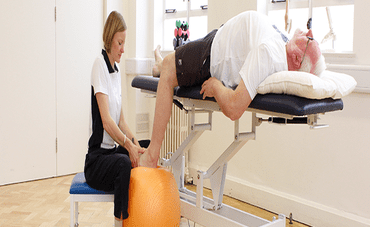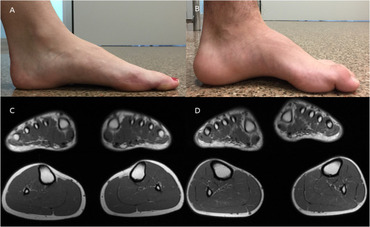Physiotherapy for MS focuses on managing symptoms and improving quality of life by addressing motor function, balance, and coordination issues. Treatment often includes customized exercise programs to enhance strength and flexibility.
Services
- Home
- Services


NEURO PHYSIOTHERAPY
Neurological physiotherapy is a specialized branch of physiotherapy aimed at treating individuals with disorders of the nervous system. These conditions often affect balance, coordination, movement, and the ability to perform daily activities. Neurological physiotherapy helps patients regain or improve their physical function and quality of life.
Sub Services of NEURO PHYSIOTHERAPY
Cerebral Palsy Treatment
Physiotherapy for cerebral palsy aims to improve motor skills, muscle strength, and coordination. Treatments often involve tailored exercises and techniques to enhance movement, manage spasticity, and promote functional independence.
Spinal Cord Injury Rehabilitation
This involves a comprehensive approach to help individuals recover and adapt following a spinal cord injury. Physiotherapy focuses on improving mobility, strength, and functional independence through exercises and adaptive techniques.
Alzheimer Disease Support
Physiotherapy for Alzheimer’s disease focuses on maintaining physical function and mobility as cognitive decline progresses. Therapists design individualized exercise programs to enhance strength, balance, and coordination, which can help prevent falls and maintain daily living skills.
Parkinson Disease Management
This involves physiotherapy strategies designed to address the motor symptoms and movement difficulties associated with Parkinson's disease. Treatment focuses on improving balance, gait, and coordination through tailored exercises and movement therapies.
Traumatic Brain Injury
This involves a comprehensive rehabilitation approach to address the physical, cognitive, and emotional challenges following a brain injury. Physiotherapy focuses on improving motor skills, balance, and coordination through targeted exercises and therapeutic interventions.
Stroke Rehabilitation
This involves a range of therapies aimed at helping individuals recover lost functions and improve their quality of life after a stroke. Physiotherapy focuses on regaining motor skills, balance, and coordination through customized exercises and activities.
Guillain Barre Syndrome
GBS is an autoimmune disorder where the immune system attacks peripheral nerves, causing muscle weakness, paralysis, and sensory disturbances. Physiotherapy for GBS focuses on restoring movement and strength through targeted exercises and supporting functional recovery.
Post-Polio Syndrome (PPS)
Physiotherapy for PPS focuses on managing symptoms through customized exercise programs, strengthening weakened muscles,and enhancing overall function while addressing fatigue and pain.
Microcephaly
Microcephaly is a condition characterized by an abnormally small head, which can indicate underdevelopment of the brain. Physiotherapy for microcephaly aims to address developmental delays by promoting motor skills and cognitive functions.
Neurological Conditions
Physiotherapy can be crucial in managing neurological conditions such as stroke, Parkinson's disease, and multiple sclerosis. Treatment focuses on improving motor function, balance and overall mobility through manual therapy, and neurological rehabilitation techniques.

Amyotrophic Lateral Sclerosis Management
Physiotherapy for ALS aims to address the progressive muscle weakness and functional decline associated with the disease.

Charcot Marie Tooth Disease Care
Physiotherapy for CMT focuses on managing the progressive symptoms of this hereditary neuropathy, which affects the peripheral nerves.
